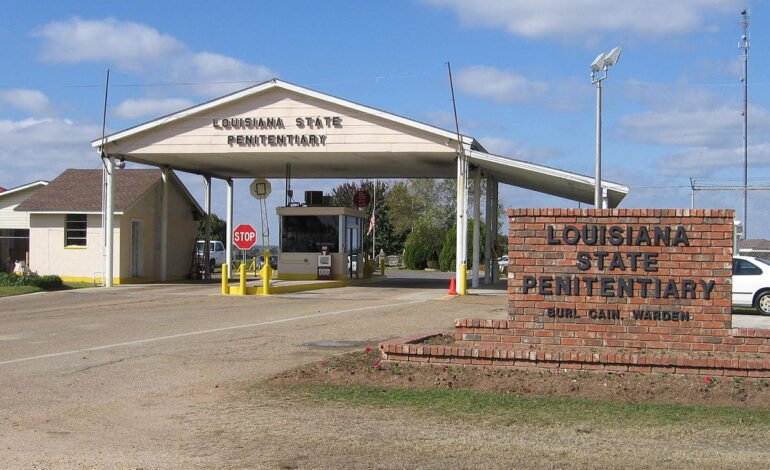File:LSPEntrance-.jpg – Wikimedia Commons
The Department of Homeland Security (DHS) announced the opening of a renovated section of the historic Angola prison in Louisiana—officially known as the Louisiana State Penitentiary—as a new immigration detention center. Nicknamed the “Louisiana Lockup,” the facility will initially house 51 people, although its capacity is projected to reach 400 detainees in the coming months.
Homeland Security Secretary Kristi Noem defended the decision, stating that the center is intended for migrants with the most serious backgrounds—the worst of the worst—and that its legendary reputation serves as an extreme deterrent to irregular migration.
Governor Jeff Landry supported this strategy, asserting that those who reject these conditions will face a problem, referring to the harshness of the prison environment. Although the unit is not new, it had been vacant for years and was remodeled this summer to reopen as a detention center.
Prior to its reactivation, a suggestive name linked to President Trump—“Camp 47”—was considered, although it was ultimately renamed “Camp 57,” in reference to Governor Landry, presumably to avoid a direct association with the prison's dark past and prevent negative connotations.
History of Angola
Angola, the largest maximum-security prison in the U.S., is located on an 18,000-acre estate, larger than Manhattan. Originally a cotton plantation and converted into a prison after the Civil War, it has endured a history of brutal violence, racial segregation, inhumane conditions, and executions, including the iconic electric chair "Gruesome Gertie," now on display in its on-site museum.
Even with reforms, Angola remains under constant criticism of abuse, forced confinement in extreme conditions, and prison labor exploitation.
Why the Louisiana prison?
The transformation of Angola into a detention center is part of a broader strategy by the Trump administration to expand detention infrastructure in collaboration with Republican governors. This expansion, driven by the $45 billion One Big Beautiful Bill Act, includes sites such as Alligator Alcatraz (Florida), Speedway Slammer (Indiana), and Cornhusker Clink (Nebraska).
At the same time, human rights organizations have been denouncing deplorable conditions in immigration detention centers in Louisiana, where abuses such as starvation, torture, lack of access to health services, and institutionalized mistreatment have been documented, in what they consider serious human rights violations.
For more stories like this, follow More Latin.
Sources:

